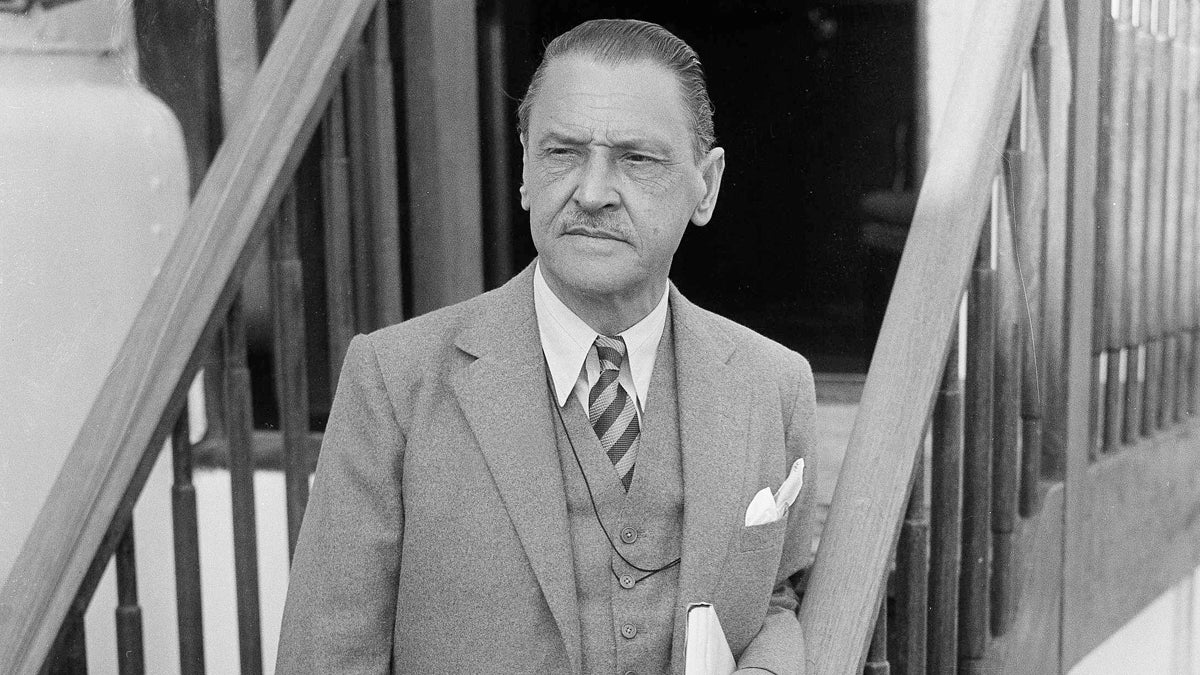Where medicine and literature overlap, the excellence of both professions is at play

Somerset Maugham
The British Medical Journal lists more than 40 physicians who became notable authors. They include Somerset Maugham, Sir Arthur Conan Doyle, A.J. Cronin, Anton Chekhov, and Michael Crichton.
And there are hundreds more. Some 2,000 years ago, the Greek physician Galen noted that the best physician is also a philosopher. Anton Chekhov said that medicine was his wife, and literature his mistress. Dr. Richard Seltzer, a surgeon and author of 13 books, says, “making the first cut in the surgical patient shares something with writing the first line of an article. Blood and ink, that’s the story of my life.”
Life imitates art
Writing helps physicians make sense of what they do. Medicine teaches them to observe the human condition, and reflecting on medicine through writing can have a societal impact. Sometimes, it might embrace medical humor, as with anesthesiologist and prolific author of such comic novels as “Doctor in the House,” Dr. Richard Gordon, who has also observed that “the pen is mightier than the scalpel.”
And humor is likely where Dr. Jonathan Miller fits in, too. He and Dudley Moore, Peter Cook, and Alan Bennett formed the comedy team that produced the witty and highly successful revue “Beyond the Fringe.” As well as writing some 16 books, Dr. Miller wrote and conducted several operas.
Some doctors approach writing with a view to bringing about societal change. Somerset Maugham, soon after becoming a doctor, wrote a novel titled “Lisa of Lambeth,” in which he used his clinical training and powers of observation to describe life among the poor in London. It sold so well that he gave up medicine and quickly embarked upon a 65-year literary career that included such classics as the autobiographical “Of Human Bondage.”
Similarly, Dr. A.J. Cronin, a Scottish doctor who wrote about the horrific working conditions of Welsh miners, also hitched his medical training to political change. He actually worked with the miners, demanding, in his novel “The Citadel,” changes not only in their grim working conditions but also in the way health care overall was delivered in Britain.
To shine a light upon medical issues, especially those affecting the brain and behavior, Dr. Oliver Sacks, the psychiatrist who wrote “The Man who Mistook his Wife for a Hat,” wrote a number of compelling tales of people struggling to adapt to a variety of neurological conditions. Sir Arthur Conan Doyle trained as an ophthalmologist, but was never really happy in the medical profession, although much of what he learned about chemicals, poisons, observation, deductive reasoning, and analysis found its way into his many Sherlock Holmes novels.
A Philadelphia author of numerous books with psychiatric themes, Dr. Silas Weir Mitchell, was president of the American Neurological Society and a patron of the arts. His portrait hangs in the College of Physicians of Philadelphia building to this day.
Emotional power and empathy
And a recent meeting at the College of Physicians featured a modern-day successor to all of those writers, Dr. Jay Baruch. Baruch is an associate professor in the department of emergency medicine at Brown University’s Alpert Medical School, where he is also co-director of the medical humanities and bioethics department.
Asked what motivated him to join the ranks of physician authors, he said that, actually, it was the reverse of the usual pattern: He was a writer as far back as he can remember; then became a physician.
“I can’t remember the exact motivation,” he says, “but it probably had something to do with observing and explaining … and also looking for ways to create rapport with patients through writing.”
That’s probably why he rates Anton Chekhov as a hero and role model, because of the emotional power and empathy Chekhov brought to his writing.
Describing himself as an average writer but a great reviser, Dr. Baruch believes that part of his role is to span the bridge between writer and reader. He notes that listening and responding to patients’ stories for over 20 years as an emergency physician has strengthened his appreciation for the many ways that the skills and principles drawn from writing fiction double as necessary clinical skills.
The stories patients tell sometimes feel like first drafts — vital and fragile works in progress. The best medicine doesn’t work on the wrong story, he says. He argues that healthcare providers need to think like creative writers and the skills and sensitivities necessary for constructing stories deserve a vital space in medical education. Thinking like a creative writer provides tools for clinical excellence and empathy. It’s hardly surprising that many of his students take to writing as enthusiastically as he has.
Anton Chekhov would surely have been proud of him.
—
David Woods, Ph.D., is a Philadelphia-based medical writer and editor. A former editor in chief of the Canadian Medical Association Journal, he is the author of four books and more than 200 articles, editorials, and reviews in peer-reviewed health care publications.
WHYY is your source for fact-based, in-depth journalism and information. As a nonprofit organization, we rely on financial support from readers like you. Please give today.







